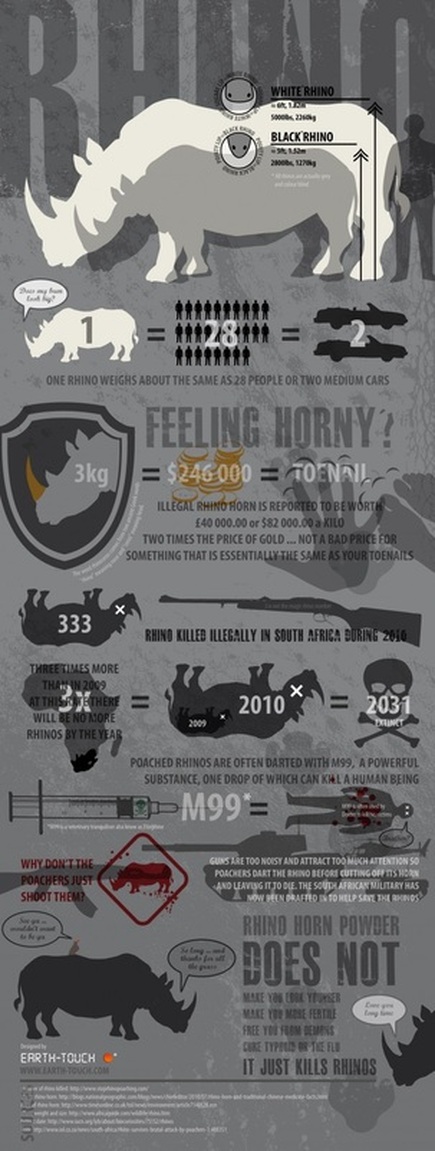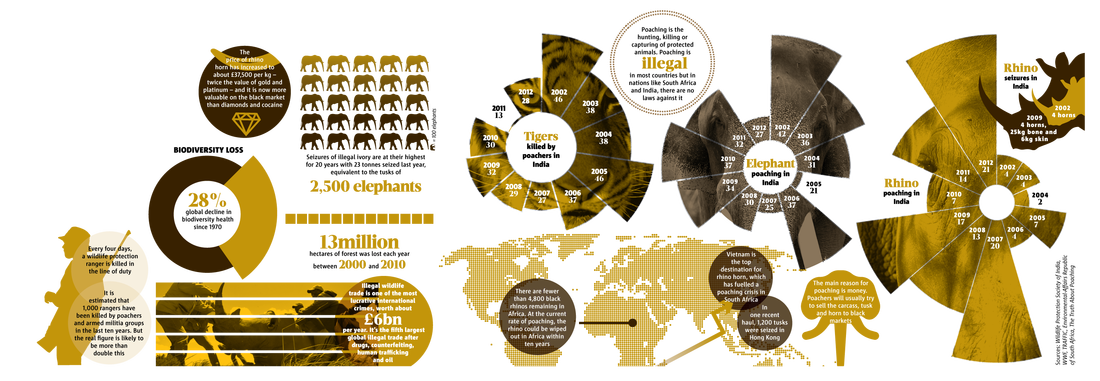Poaching
|
Navigation
"Poaching is a deadly crime against wildlife. Wildlife officials say that legal hunters kill tens of millions of animals every year. For each of those animals, another is killed illegally, perhaps on closed land or out of season, leaving orphaned young to starve. Few poachers are caught or punished. Why do they do this? For many, profit is the motive. Some poachers just love killing animals, or want a trophy." ~ The Humane Society of the United States |

Poaching is the illegal hunting, killing or capturing of any wildlife, in violation of local, state, federal or international conservation and wildlife management laws. Poaching is typically done for profit where poachers sell the animal parts, ranging from tusks and horns to fur and bone, to black markets. Wildlife crime is usually run by dangerous international networks where animal parts are trafficked similarly to illegal drugs and arms. Animals are killed for food, clothes, wool, cosmetics, religious reasons, medicines, ornaments, fat, or simply for sport. For example, black rhinos, which are critically endangered species and among the most hunted by poachers, have a heavy bounty on their horns because practitioners of traditional medicine in China and other Asian countries believe ground rhinoceros horns contain medicinal attributes that help cure diseases such as cancer, although there is no scientific evidence. Poaching robs legitimate sportsmen of game and fish, robs businesses and taxpayers of revenues generated by hunting and fishing, robs nature of biodiversity and robs us and future generations of wildlife. According to WWF, "Corruption, toothless laws, weak judicial systems and light sentences allow criminal networks to keep plundering wildlife with little regard to consequences. These factors make illegal wildlife trade a low risk business with high returns." It is almost impossible to know for sure the number of animals killed by poachers every year, but estimates indicate that poachers take as much fish and game as legitimate sportsmen do during the legal seasons. All across the world citizens and law enforcement officials are working together to combat this problem. Learn more.
"The causes of poaching vary, but the myth that most poachers are committing their offenses to provide food is in reality not even a fraction of a percentage of all cases prosecuted. Often, modern poaching is done by criminals driving $30,000 vehicles, using expensive night-vision technology, illegal silencers on the firearms, and often military-style rifles." ~Pennsylvania Game Commission Bureau of Wildlife Protection Director Richard Palmer
|
|
"Biodiversity is a fundamental building block of the services that ecosystems deliver to human societies. Intrinsically important because of its contribution to the functioning of ecosystems, biodiversity – the variation of life at the genetic, species, and ecosystem levels of biological organization – is difficult or impossible to recover or replace once it is eroded." ~U.S. Climate Change Science Program Poaching Infographic |
|
Last Revised: 11/20/13
Commenting Rules |







